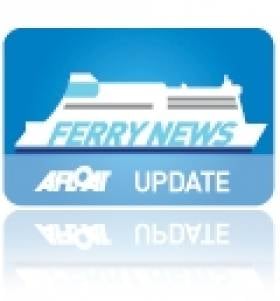Displaying items by tag: 2014 Winter Olympics
Prior to her arrival on the North Channel, Norcape had been laid-up in Liverpool since February 2010 after the former B+I Line vessel (MV Tipperary) was replaced by European Endeavour on the central corridor route to Dublin. As of this week the ro-pax freight vessel which has been running in a freight-only mode will now carry motorists likewise to her route fleetmates Norbank and Norbay.
With the departure of European Mariner from the Irish Sea, she follows a trio of former Stena Line freight-ferry sisters which were made redundant since the closure of the Belfast-Heysham route late last year. It is believed the sisters Stena Seafarer, Stena Leader and Stena Pioneer have been sold to Russian interests to serve in the Black Sea in connection to the 2014 Winter Olympics in Sochi.
The sisters were renamed, Stena Pioneer became Ant 1, Stena Seafarer is the Ant 2 and Stena Leader is the Anna Marine. They departed Belfast Lough in mid-June to Sevastopol in the Ukraine under the Moldovan flag and with a port of registry in Giurgiulesti.
- Port of Larne
- Belfast Lough
- Stena Line
- Ports and Shipping News
- RoPax
- North Channel
- P&O (Irish Sea)
- B+I Line
- European Endeavour
- Ferry news
- Belfast Lough News
- RosslareFishguard
- LarneTroon
- European Mariner
- Freightferries
- MV Tipperary
- Central Coridoor route
- BelfastFleetwood
- Stena Europe ferry
- 2014 Winter Olympics
- Sochi
- Black Sea
- Turkish shipbreakers
- Izmir
- Turkey
- Winter Olympics 2014
- Irish Sea ferry motorists






























































